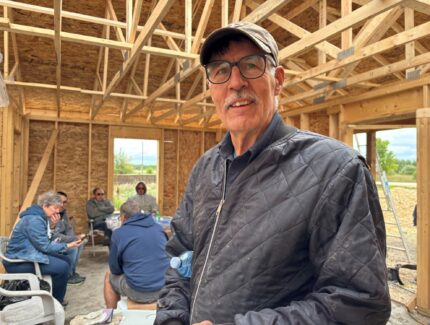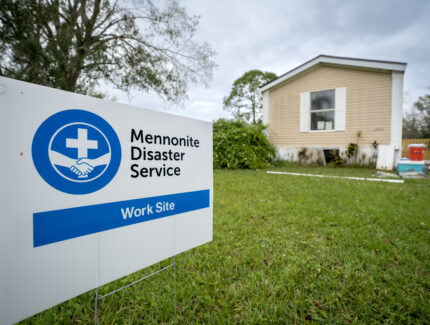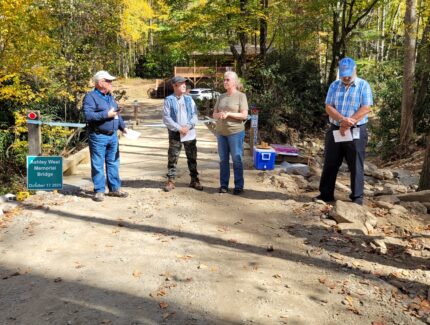
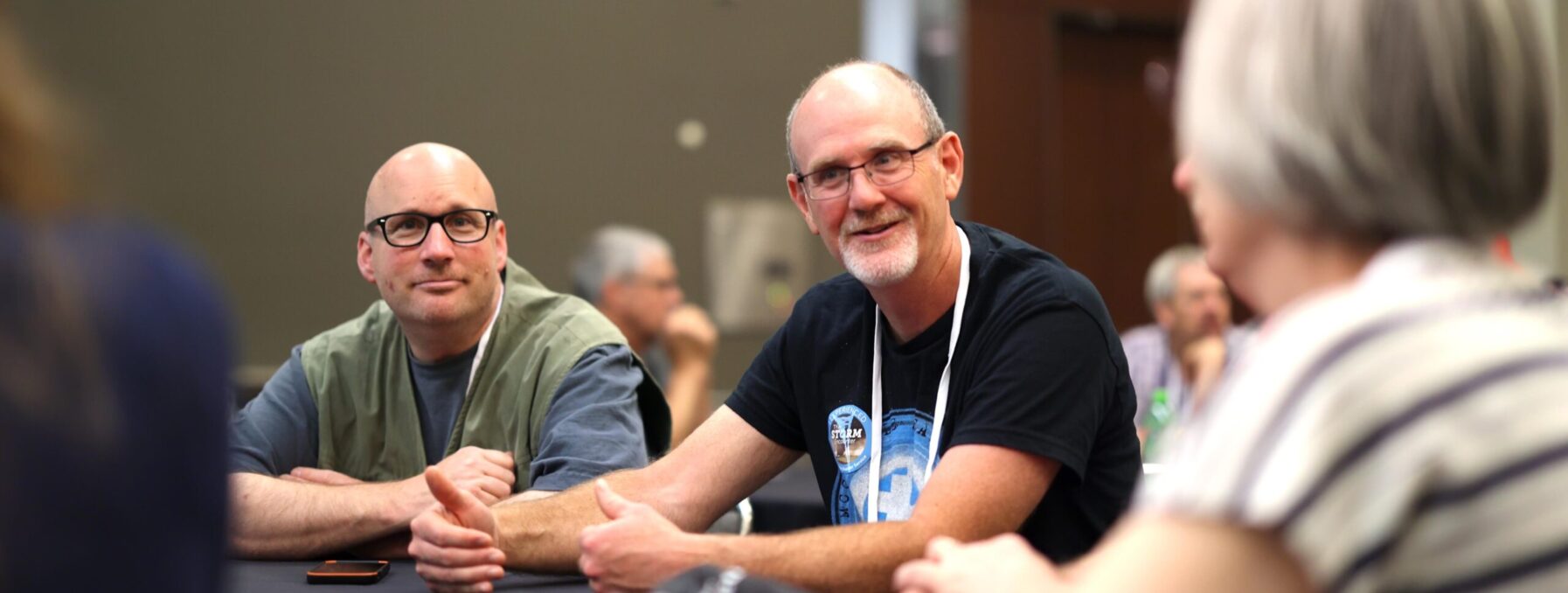
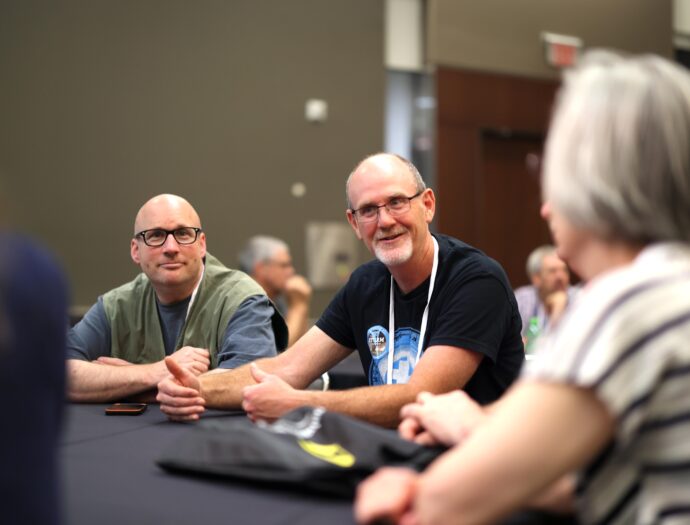
July 5, 2023
In an era of “nones,” what can MDS offer?
We have entered an era of “nones.” In a seminar offered at MennoCon this week in Kansas City, Mennonite Disaster Service (MDS) Volunteer Development Coordinator Terry Zehr explained what this might mean.
“It has become clear that a higher percentage of the population, when polled, checked off the box ‘none’ for religious affiliation,” he said. “People are leaving the church.”
Not all of them are young—but young people certainly represent a strong percentage of them. “Many of these young people come from a long, deep generational church tradition,” Zehr said. “Something has, and is, shifting.”

Where does this leave the wider church and, specifically, MDS? “This is really complex, this phenomena,” Zehr said. “The move into this category is not trite.”
MDS is not taking the move toward “none” lightly—particularly since many young people hold a highly developed sense of spiritual awareness.
“This includes more than a little bit of pain all the way around,” Zehr said. “If this topic holds some pain for you, I can assure you you are not alone.”
Leaving a faith community is rarely, if ever, unaccompanied by pain in those who are leaving and those who remain.
“First, listen to the stories of others and, then, when invited, tell your own,” Zehr recommended. “We need to listen deeply.”
In an era in which MDS is trying to build its volunteer base, Zehr insists we shouldn’t look at “nones” as some kind of problem to solve. “The vision at MDS is that we strive to be the hands and feet of Jesus to those affected by disasters,” he said. “MDS is uniquely positioned.”
In its simplest form, he added, Jesus is the center of our faith. “We all agree: helping people who cannot recover on their own get back into safe housing is a very Jesus-y act,” he said.

Terry answers audience questions during his seminar.
He went on to offer some learnings he gleaned from in-depth interview among “nones.” One is that younger generations have been “sold to” their whole lives. “They have a highly developed sense of getting a sell job,” said Zehr. “Holding a high view of Jesus and expressing it in humble service: that stands out.”
Sacrificial love gets noticed, he said—and MDS volunteers are practicing sacrificial love every day on job sites across the U.S. and Canada.
Zehr’s presentation sparked conversations that continued during his seminar and at MennoCon during the days following.
Ken Hawes, a delegate from Freeport, Illinois, reflected that many “nones” have a desire for community. “There are such big issues that they don’t know where to begin,” said Hawes. “That’s where mentorship comes in.”
Many people who have nothing to do with the church still find value in helping others, Hawes added. “The more hands—the more good we get done,” he said.
What MDS offers
Ultimately, MDS offers an embodied experience for the sake of another person, Zehr concluded. “There is another way to live—we offer a different experience of the invitation to follow Jesus,” he said. “We offer a place to disconnect with normal rhythms and create a place for reflection.”

Spending a week volunteering for MDS means working hard, getting sweaty, giving of yourself, and switching gears. “We also offer a way to participate in reducing inequity and injustice while working at climate mitigation practices—like building bridges that don’t sweep away when the crick rises,” he said. “We offer a place where differences are left at the door for the sake of the mission.”
It’s the theology of the hammer. “I hope that we are all building bridges into our community,” said Zehr. “We need people willing to serve who are also willing to invite ‘nones’ to join them.”
Can you tap someone on the shoulder? “If you are wiling, put together a group to go to an MDS project, and ask some folks from your congregation—and some outside the congregation—to go,” urged Zehr. “We need you.”

